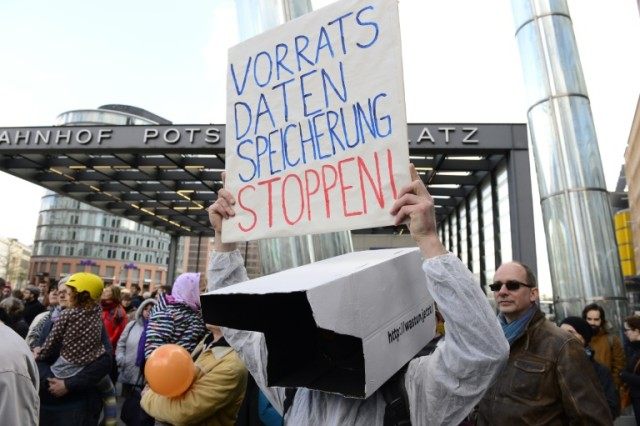Strasbourg (France) (AFP) – The European Parliament on Thursday adopted for the first time a single set of rules for the 28-nation EU to protect the privacy of people using the Internet.
The reform replaces a patchwork of rules introduced two decades ago at the dawn of the Internet age and boosts efforts by the European Commission, the EU executive, to build a single digital market for 500 million people.
Under the rules, national watchdogs will be empowered to fine firms up to four percent of their total worldwide annual turnover if they are found to have broken EU-wide data protection rules.
“These new laws will ensure that the fundamental right to personal data protection is upheld for all European citizens,” the commission’s First Vice President Frans Timmermans said after the vote in Strasbourg, France.
“And they will help stimulate the digital single market in the EU by fostering trust in online services by consumers and certainty for businesses,” Timmermans added.
The new rules, which took four years to hammer out, include guarantees on the so-called “right to be forgotten.”
Google and Brussels have previously clashed over this right, which allows citizens to require search engines to erase results involving them after a period of time.
The new rules also give citizens the right to transfer their data to another service provider and to know when their information has been hacked while privacy policies must be explained to them clearly.
They are also designed to smoothen cooperation among law enforcement authorities, a measure made more urgent with the recent attacks by jihadists in Brussels and Paris.
They set minimum standards for police to handle data within each member state as well as regulate police transfers of data across borders.
“This (reform) is a great success for the European Parliament and a fierce European ‘yes’ to strong consumer rights and competition in the digital age,” said Jan Philipp Albrecht, a Greens MEP who steered the legislation through parliament.
“Citizens will be able to decide for themselves which personal information they want to share,” Albrecht added.
“The regulation will also create clarity for businesses by establishing a single law across the EU. The new law creates confidence, legal certainty and fairer competition.”
Brussels is seeking to extend the EU single market to the digital era.
Europe as a bloc is the world’s biggest economy, but despite its 500 million potential consumers it largely remains a divided continent of 28 distinct economies, especially when it comes to media and the Internet.
Member states will have two years to turn the reform’s provisions into law.

COMMENTS
Please let us know if you're having issues with commenting.